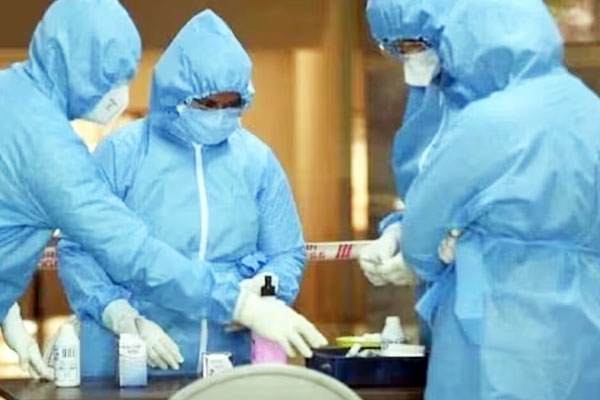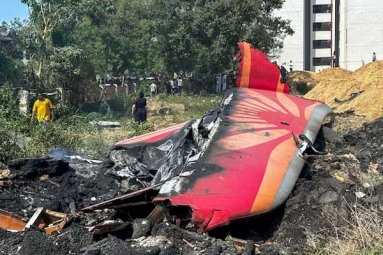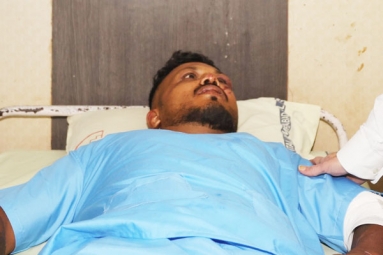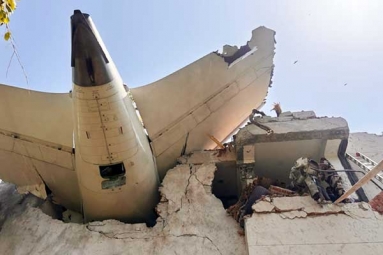
(Image source from: PTI)
India is witnessing a rise in Covid-19 cases with the emergence of new sub-variants NB.1.8.1 and LF.7, both derived from the ongoing Omicron lineage, across various regions of the nation. Data released by the Indian SARS-CoV-2 Genomics Consortium (INSACOG) reveals that one instance of NB.1.8.1 was identified in Tamil Nadu during April, while four occurrences of LF.7 were logged in Gujarat in May. The most recent reported case involves a 55-year-old woman from Noida in Uttar Pradesh, who has tested positive for Covid-19, marking the first confirmed instance in the district during this current wave. After traveling by train, she is currently in home isolation, and her close contacts have all tested negative, as stated by Dr. Narendra Kumar, the Chief Medical Officer of Gautam Buddha Nagar.
In addition, AIIMS Rishikesh has confirmed three cases of Covid-19, with one patient discharged and the others still under observation. Dr. Meenu Singh, Director of AIIMS Rishikesh, noted that this new variant is "not very harmful," yet it is important to exercise caution, particularly for individuals with pre-existing health conditions. Both NB.1.8.1 and LF.7 are considered sub-lineages of the JN.1 variant, which is the predominant strain in India, representing 53% of all sequenced specimens. The World Health Organisation (WHO) is actively monitoring these sub-variants as "Variants Under Monitoring." This designation indicates they possess mutations that could modify the behavior of the virus; however, they have not yet earned the classifications of "Variants of Concern" or "Variants of Interest."
Preliminary research and expert evaluations indicate that these sub-variants may exhibit increased transmissibility and an enhanced ability to bypass immune responses compared to earlier strains. For example, NB.1.8.1 has prominent spike protein mutations, including A435S, V445H, and T478I, which might boost its infectiousness and immune evasion potential. The JN.1 lineage includes the L455S mutation, which is believed to make it 1.5 times more infectious than earlier variants. Despite these characteristics, the severity of illness linked to these sub-variants seems to be relatively mild. Dr. Arup Halder, a Consultant Pulmonologist at CMRI Hospital in Kolkata, mentioned that "most cases are mild with low hospitalization rates." He attributed the uptick in cases mainly to declining immunity, inconsistent booster uptake, and enhanced detection capabilities due to improved surveillance.
As of May 19, India reported 257 active Covid-19 cases. However, in the past week, the number of cases surpassed 100 in Delhi and reached over 400 in Kerala, with a total of 750 new cases nationwide. States like Kerala, Maharashtra, and Tamil Nadu have become hotspots, with cities such as Mumbai, Pune, and Thane logging the highest numbers of cases. In response to the rising infections, Delhi has issued guidance to hospitals to ensure adequate supplies of beds, oxygen, medications, and vaccines. Although variant-specific vaccines are still not available in India, existing boosters remain effective. Dr. Halder confirmed that these boosters can decrease the likelihood of symptomatic infections by 50% and reduce the risk of severe diseases by as much as 80%.
As of now, India has delivered over 2.2 billion doses of Covid-19 vaccines, as per the expert. However, the adoption of booster shots has not been uniform, particularly within at-risk groups. Issues such as misinformation and logistical hurdles contribute to continued vaccine hesitancy. Experts advise that individuals at high risk, particularly seniors and those with pre-existing health issues, should receive their booster doses without delay. It is essential for these at-risk individuals to get boosted as soon as possible, wear masks in crowded environments, and adhere to fundamental hygiene practices.









